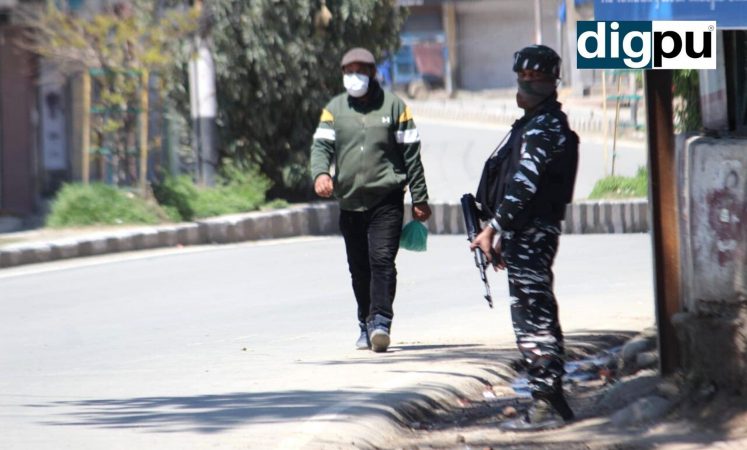
[ad_1]
J-K Govt employment: Mandatory for employees to report on relatives who might be involved in activities hostile to India’s national and security interest.
New Delhi: Since the erstwhile state of Jammu and Kashmir was bifurcated into two Union Territories after the abrogation of Article 370, the J-K Government had brought in a slew of new rules and regulations for the resident citizens. However, the new laws and orders, have made government employment in the UT a very difficult preposition.
As per a latest order by the UT authorities, its employees will be terminated from service and will also become ineligible for promotion if they are found to have been involved in any act of ‘sabotage, espionage, treason, terrorism, subversion, sedition/secession, facilitating foreign interference, incitement to violence, or any other unconstitutional act’.
According to a report by LiveLaw, the government has issued an order stating that if a government employee fails to report relatives and acquaintances who may be ‘directly or indirectly’ involved in activities hostile to ‘India’s national and security interest,’ the government employee will be held liable and may face termination.
Failure to disclose names of relatives, housemates, or associates with any foreign government, associations, or foreign people known to be directly or indirectly opposed to India’s national and security interests, will make the employees liable to be terminated from service, according to the directive.
The order was issued in accordance with the Jammu and Kashmir Civil Services (Character & Antecedents) Instructions, 1997, which defines a government employee’s behaviour. These regulations comprise a variety of requirements that govern the behaviour of employees in both public and private spaces.
The elaborate list of activities for which a government employee can be held accountable has also been outlined in the latest order.
Govt to compile a list of ‘adversely reported’ employees
The directive further specifies that the government will compile a ‘list of adversely reported employees’ from time to time based on the aforesaid parameters through a process of ‘discreet verification.’ As a result, the pertinent administrative departments will become aware of such a list of employees and submit it to the General Administration Department as soon as possible.
Such instances would then be referred to the UT Level Screening Committee, which was established under the Jammu and Kashmir Civil Services (Verification of Character and Antecedents) Instructions, 1997.
Following that, if such personnel are due for promotion (functional or non-functional), their cases will be placed on hold immediately, according to the order.
If the UT Level Screening Committee confirms the unfavourable complaint, further action against the adversely reported employee(s) would be taken, which may include termination from government service.
The decision of the UT Level Screening Committee can be appealed to the Review Committee, either on the UT Level Screening Committee’s recommendation or on the representation of any aggrieved employee(s), according to the order.
Employees applying for passports must have vigilance clearance
Earlier on Thursday, September 16, the government of Jammu & Kashmir Union Territory made vigilance clearance essential for employees seeking for passports.
The General Administration Department (GAD) directed all administrative departments/heads of departments (HODs) to obtain the most recent vigilance clearance of employees applying for passports in accordance with an office memorandum issued by the Department of Personnel and Trainings of the Government of India on February 2, 2020.
According to the Department of Personnel and Trainings’ 2020 directive, vigilance clearance can be withheld if an employee is suspended or a charge sheet has been filed in court by the investigating agency in a criminal case, or after a competent authority has granted sanction under the Prevention of Corruption Act or any other criminal matter that has been taken cognizance of by a court of law.
Pertinently, the people in Govt employment positins in the UT can be prematurely retired after 22 years of service or when they reach the age of 48, according to the modified Jammu & Kashmir Civil Service Regulations.
‘Govt service regulations getting harsher’
Although Digpu News reached out to a few government employees working in the UT, no one came on record to talk about the new directive of the administration.
However, a retired government employee, Mohammad Rajab Ganie said that the new J-K government employment service regulations were ‘harsher’.
“A person is innocent unless proven guilty, but it seems that the administration has thought that government employees need policing. This is why such rules are brought in,” Rajab lamented. He went on to say that such ‘harsher’ regulations were unknown to be prevalent in a democratic country like India.
[ad_2]

